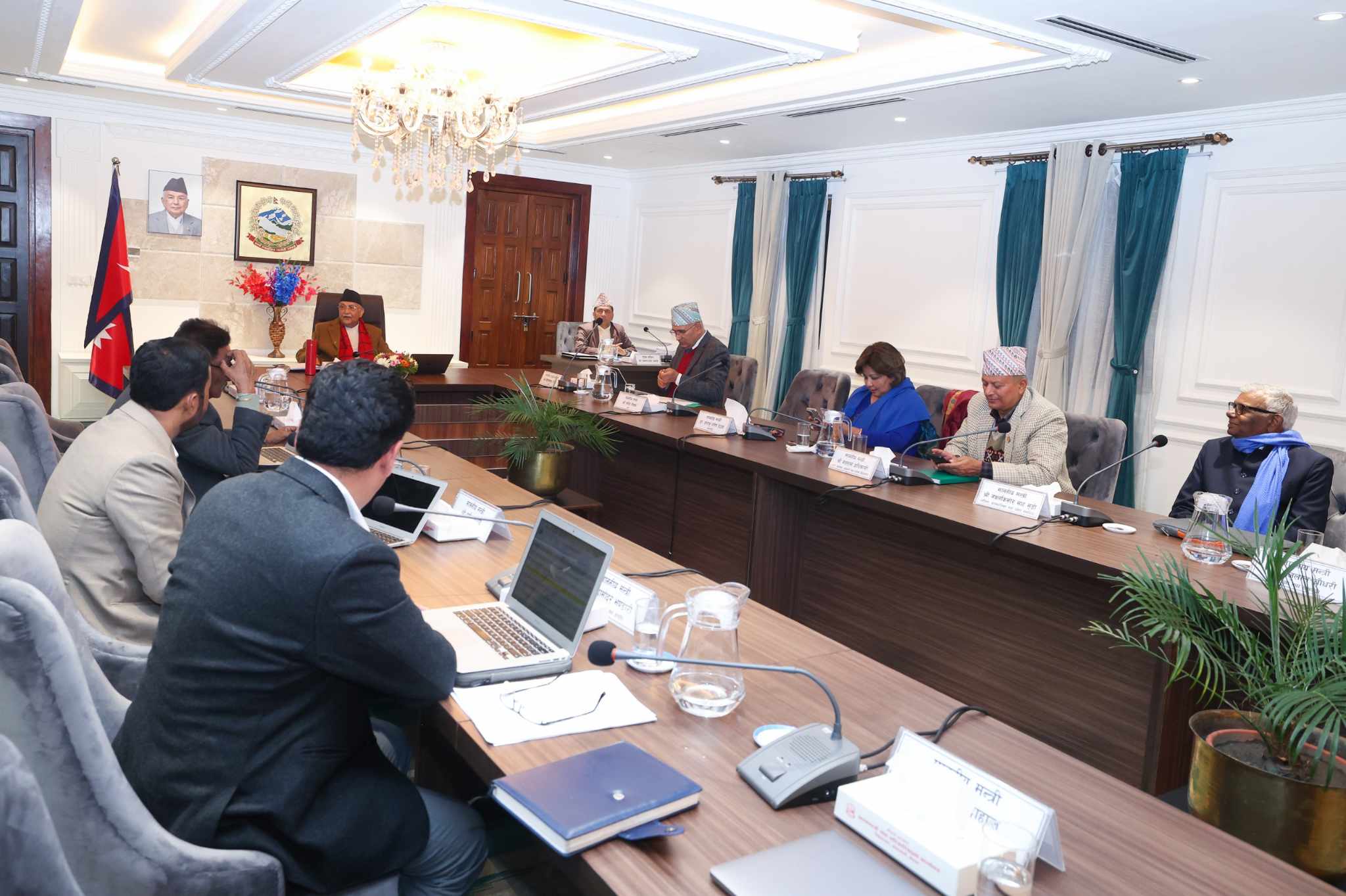KATHMANDU: The government has introduced an ordinance to amend various laws, aiming to enhance public service delivery and modernize several legal frameworks.
The ordinance, approved during a late-night cabinet meeting in Prime Minister’s residence in Baluwatar, has been forwarded to the President’s Office for approval.
Among its key provisions, non-resident Nepali citizenship holders will be eligible for a free visa after residing in Nepal for ten years.
Additionally, the ordinance mandates that government decisions be made within seven days to improve efficiency, with provisions for action against non-compliance.
National identity cards will gradually become mandatory for accessing social security allowances.
Further amendments include increasing the mandatory retirement age of workers from 58 to 60 years and integrating teachers into the pension fund.
Provisions have been introduced to facilitate the use of the Nagarik app in public service delivery, simplify company registration, and provide incentives for liquidating non-operational companies.
The ordinance also amends laws to permit Nepali IT companies to invest abroad and open branch offices in foreign markets.
In revenue-related reforms, the Revenue Disputes and Revenue Leakage Investigation Department can now settle cases involving amounts up to Rs 30 million.
It also allows for settlements in revenue leakage cases without awaiting court decisions. Fast-track mediation will be implemented to address delays in resolving disputes related to government contracts.
Non-resident Nepali citizens will now be allowed to open companies in Nepal without requiring foreign investment approval.
Clearer regulations have been established for employee share sales, and service-based industries will now be permitted within special economic zones, which were previously limited to manufacturing industries.
Other notable amendments include simplifying the appeal process by requiring only 15 percent of the initial fine deposit instead of the full amount and introducing provisions to confiscate properties and tools involved in crimes.
The Yogmaya Ayurveda University Operation Law has also been revised.









Comment